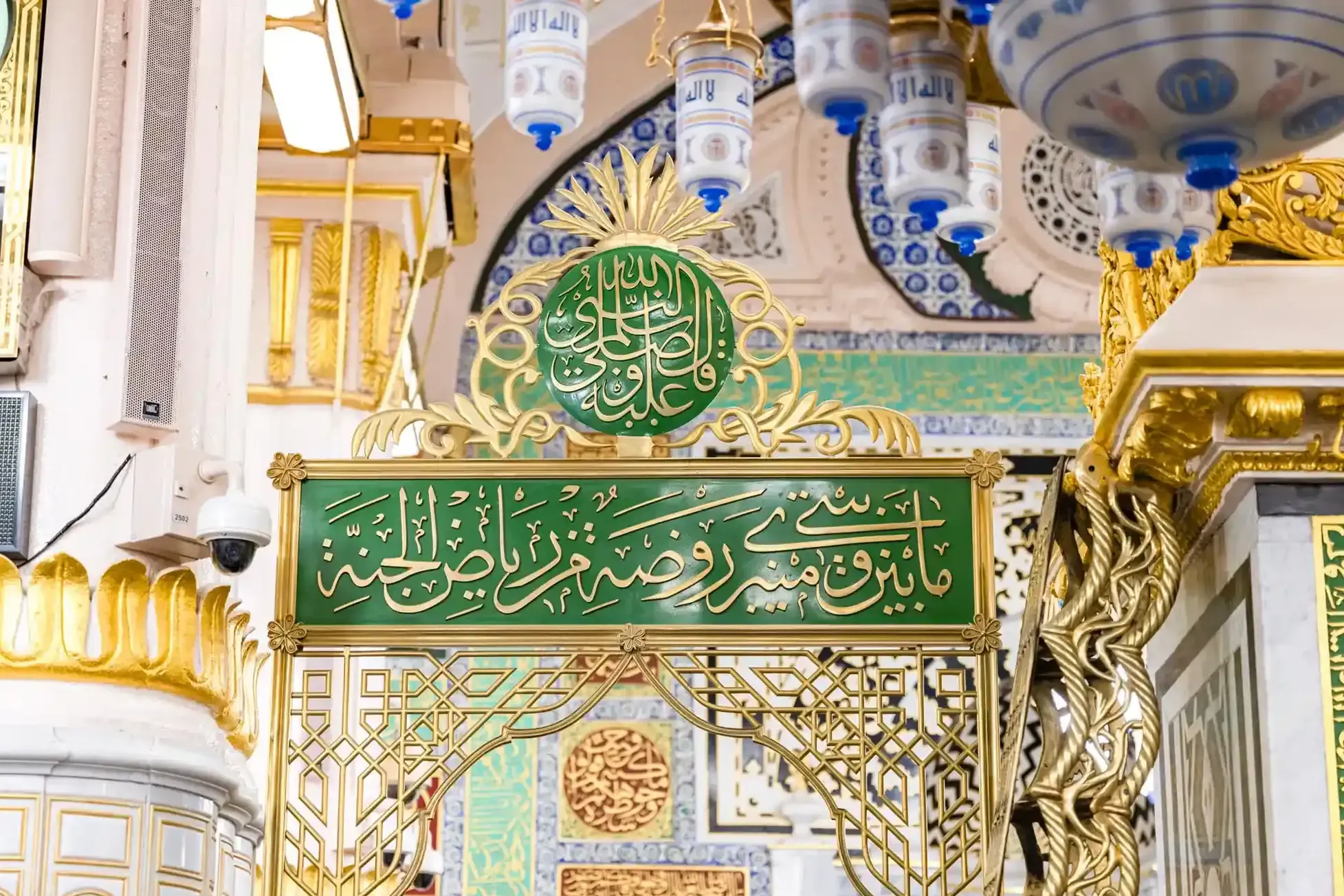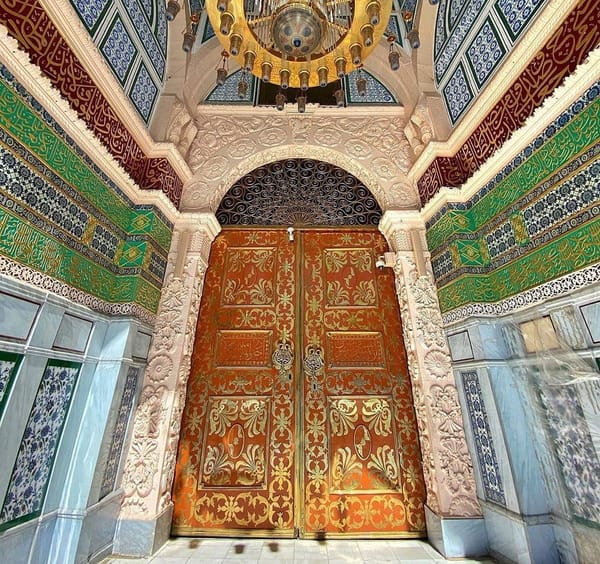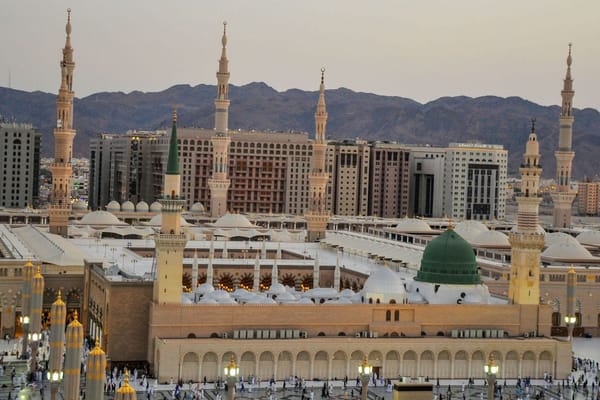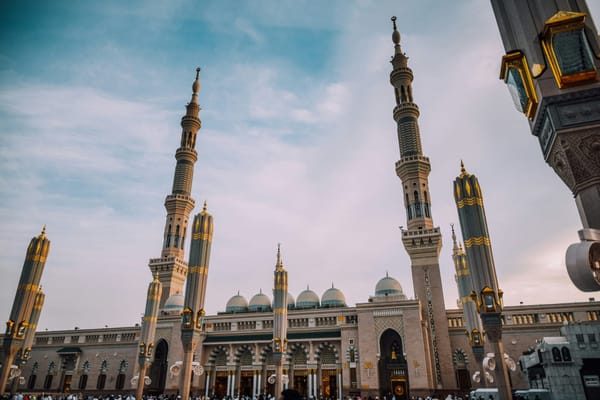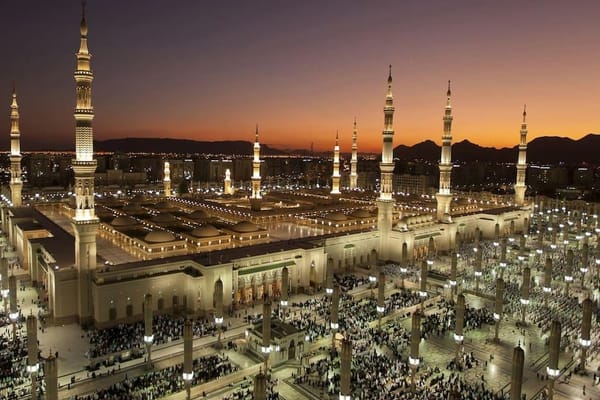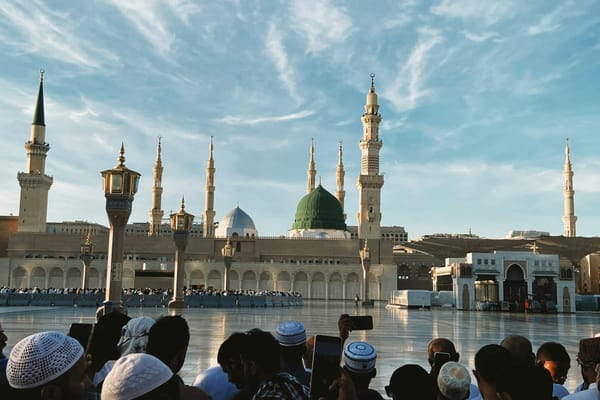The Rawdah (Riaz ul-Jannah), nestled between the Prophet Muhammad’s (ﷺ) pulpit and his blessed tomb in Masjid un-Nabawi, is one of the most spiritually significant places for Muslims around the world. In 2025, new updates have been introduced to ensure a smoother, more organized experience for both male and female visitors.
Whether you’re walking in on foot or arriving via the Hop-On Hop-Off sightseeing bus, a visit to Rawdah is a spiritual highlight in any Madinah itinerary.
Here’s everything you need to know for planning your visit in 2025.
What Is Rawdah and Why Is It Special?
Rawdah Al-Mutahhara, meaning “The Purified Garden,” is the space between the Minbar (pulpit) and the Prophet Muhammad’s (ﷺ) chamber, where he lived and is now buried. The Prophet described it as:
“A garden from the gardens of Paradise” (Bukhari, Muslim)
This makes it a place of immense spiritual reward. Its significance stems not just from this hadith, but also from its history—this was the heart of the Prophet’s mosque, where many important moments of early Islam unfolded.
Who Is Buried in Rawdah?
While the Rawdah itself is a sacred prayer area, directly next to it lies the chamber (hujrah) where the Prophet Muhammad (ﷺ) is buried. Alongside him are Abu Bakr Al-Siddiq (RA) and Umar ibn Al-Khattab (RA), his closest companions and the first two caliphs of Islam.
The graves are not accessible to the public but can be seen from behind a decorative golden enclosure near Rawdah.
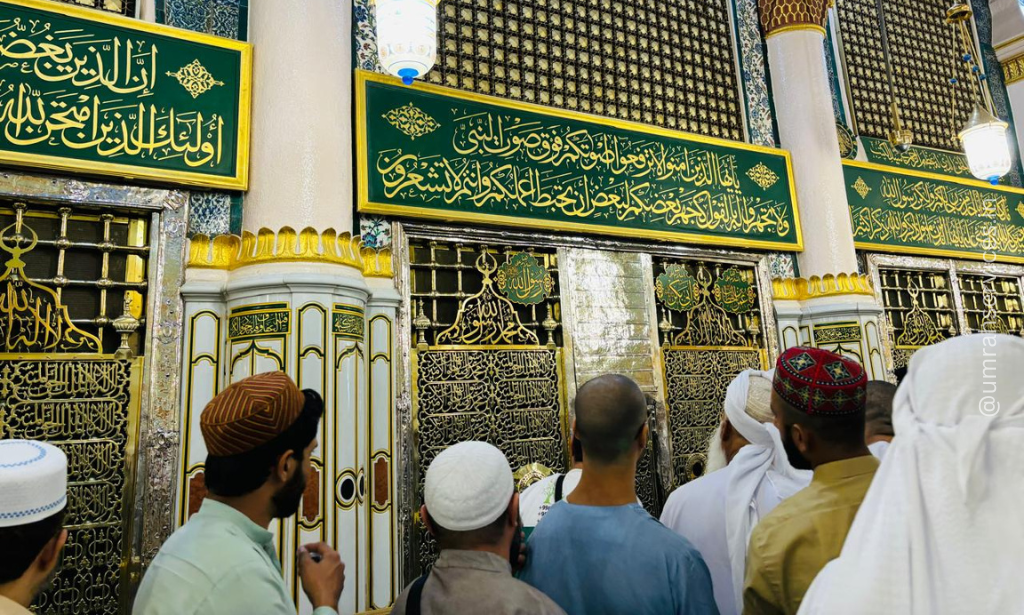
What Happens When You Pray in Rawdah?
Praying in Rawdah carries immense spiritual reward. Many scholars interpret the Prophet’s words about Rawdah being a garden of Paradise to mean that:
- Prayers and duas offered there are more likely to be accepted.
- The space holds a tranquility unmatched by other areas.
What to Pray in Rawdah
Tahiyyatul Masjid
One of the first acts many pilgrims perform upon entering Rawdah is Tahiyyatul Masjid, the greeting prayer. This is a two-unit voluntary prayer (rak‘ahs) offered before sitting down in the mosque, as an expression of respect for the sacred space. The practice is based on a hadith of the Prophet Muhammad (ﷺ) who said:
“When one of you enters the mosque, let him not sit until he prays two rak‘ahs”
— (Sahih al-Bukhari & Muslim)
Other Recommended Acts in Rawdah
In addition to Tahiyyatul Masjid, many visitors also engage in voluntary prayers (nafl), quiet personal supplications (duas), and remembrance of Allah (dhikr). While praying in Rawdah is not obligatory, it is highly recommended for those granted the opportunity, due to its immense spiritual merit.
New Rules for Visiting Rawdah in 2025
Mandatory Appointment via Nusuk App
As of 2025, all visitors must book their visit to Rawdah through the official "Nusuk" app, launched by Saudi Arabia’s Ministry of Hajj and Umrah.
How to Book:
- Download the Nusuk app (available on Android and iOS).
- Sign in or register with your personal information and visa number.
- Select “Praying in the Noble Rawdah” as a service.
- Choose the gender, time slot, and date.
- You will receive a QR code for entry.
Rawdah Entrance Gates for Men and Women
Men’s Rawdah Entrance
- Timings: Daily from 2:30 AM to Fajr, then again after Dhuhr until Isha.
- Entry Gates:
- Gate 1 (Bab Al-Salam)
- Gate 37
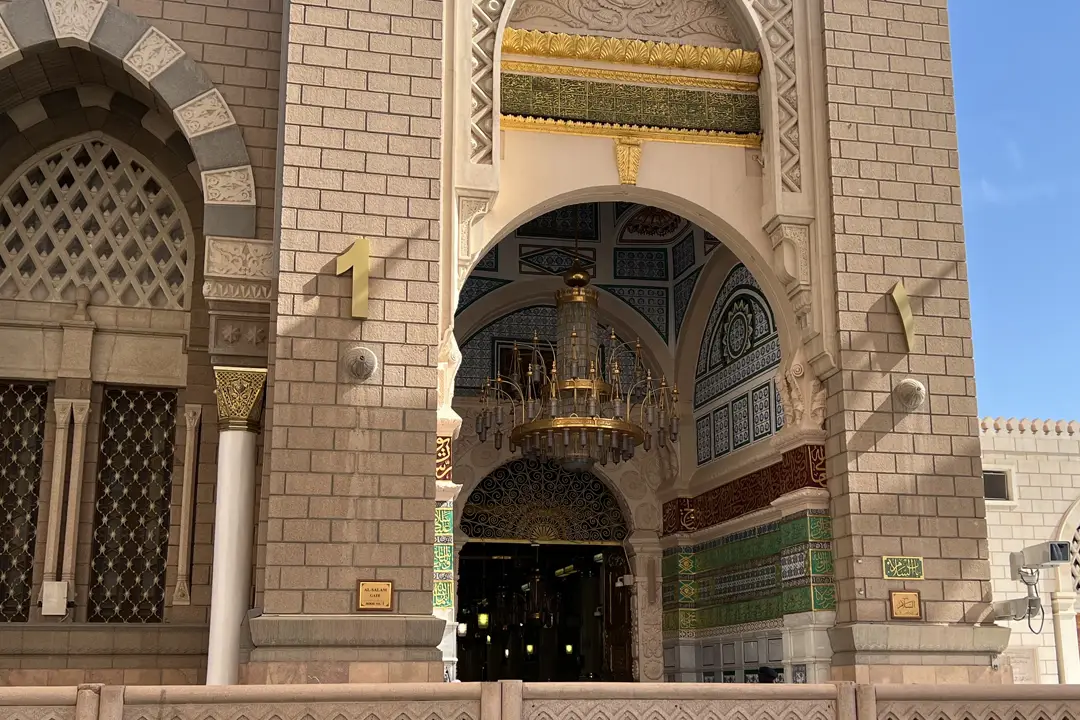
Women’s Rawdah Entrance
- Timings:
- Morning: 6:00 AM – 11:00 AM
- Evening: 9:30 PM – 12:00 AM
- Entry Gate:
- Gate 25 (Bab Uthman ibn Affan)
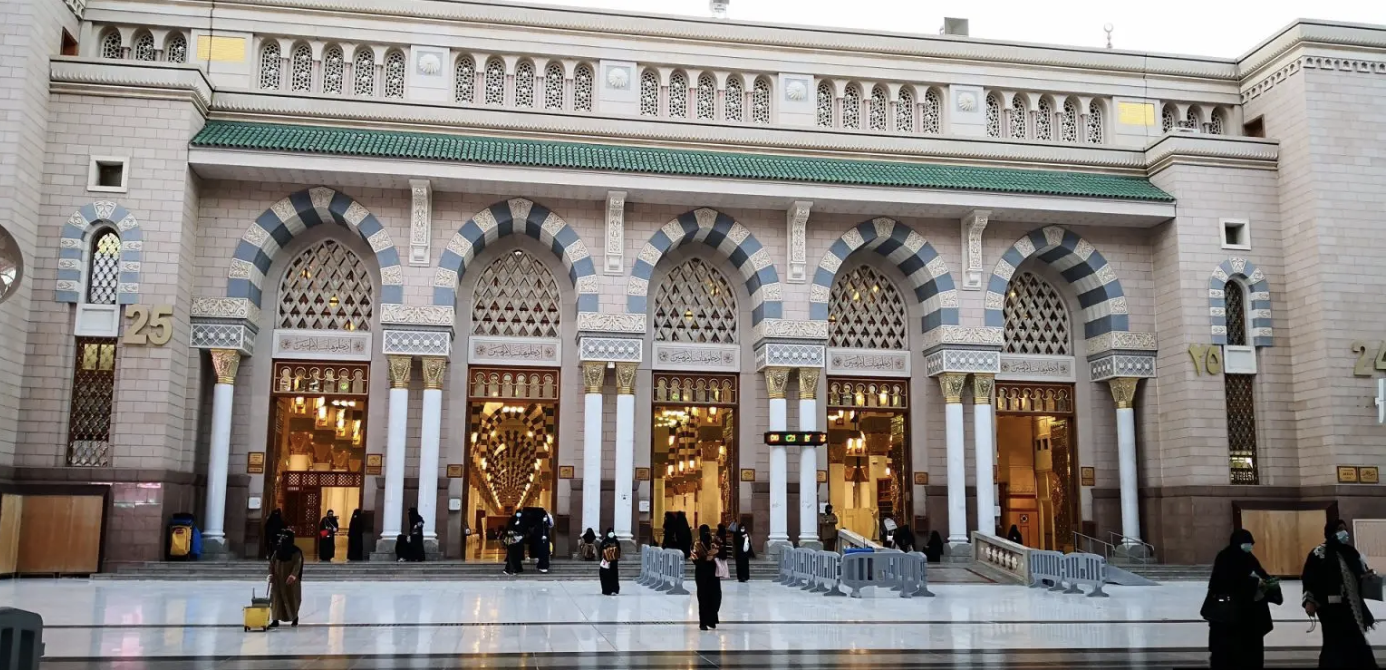
- Requirements:
- Valid Nusuk appointment
- Women-only entry slots
- Proper hijab and modest clothing
How Do You Identify Rawdah?
Rawdah is easy to spot once you’re inside the mosque. Its flooring is distinctively green-carpeted, unlike the red or beige carpets in the rest of the Prophet’s Mosque.
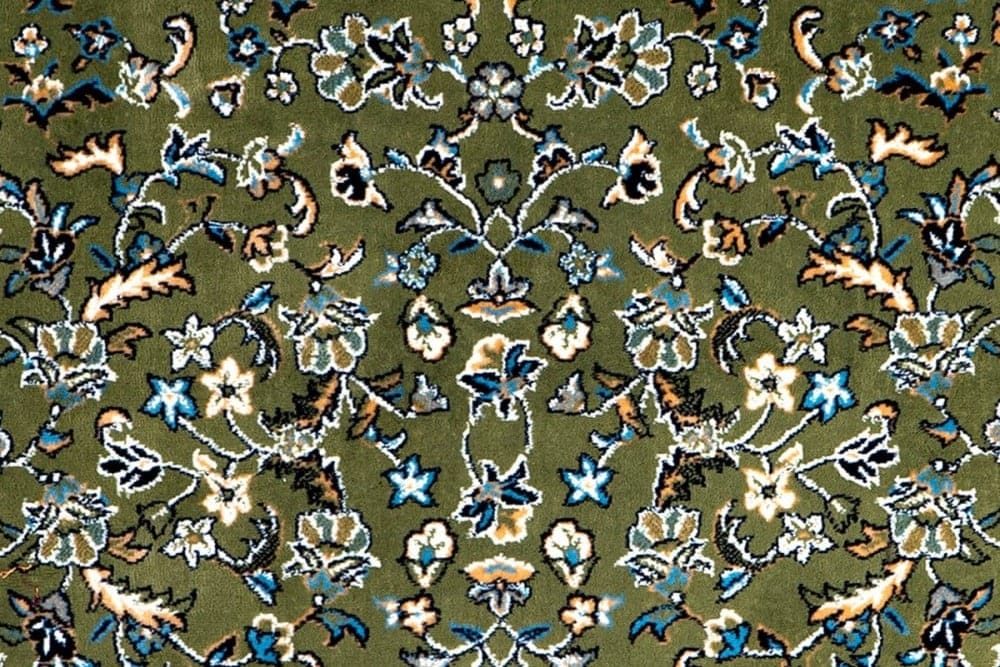
Landmarks:
- The Minbar (wooden pulpit) of the Prophet.
- The golden, ornate enclosure of the Prophet’s tomb.
- Green and white marble pillars dating back to early Islamic times.
During your visit, follow signage or the guidance of mosque staff to ensure you are in the right area.
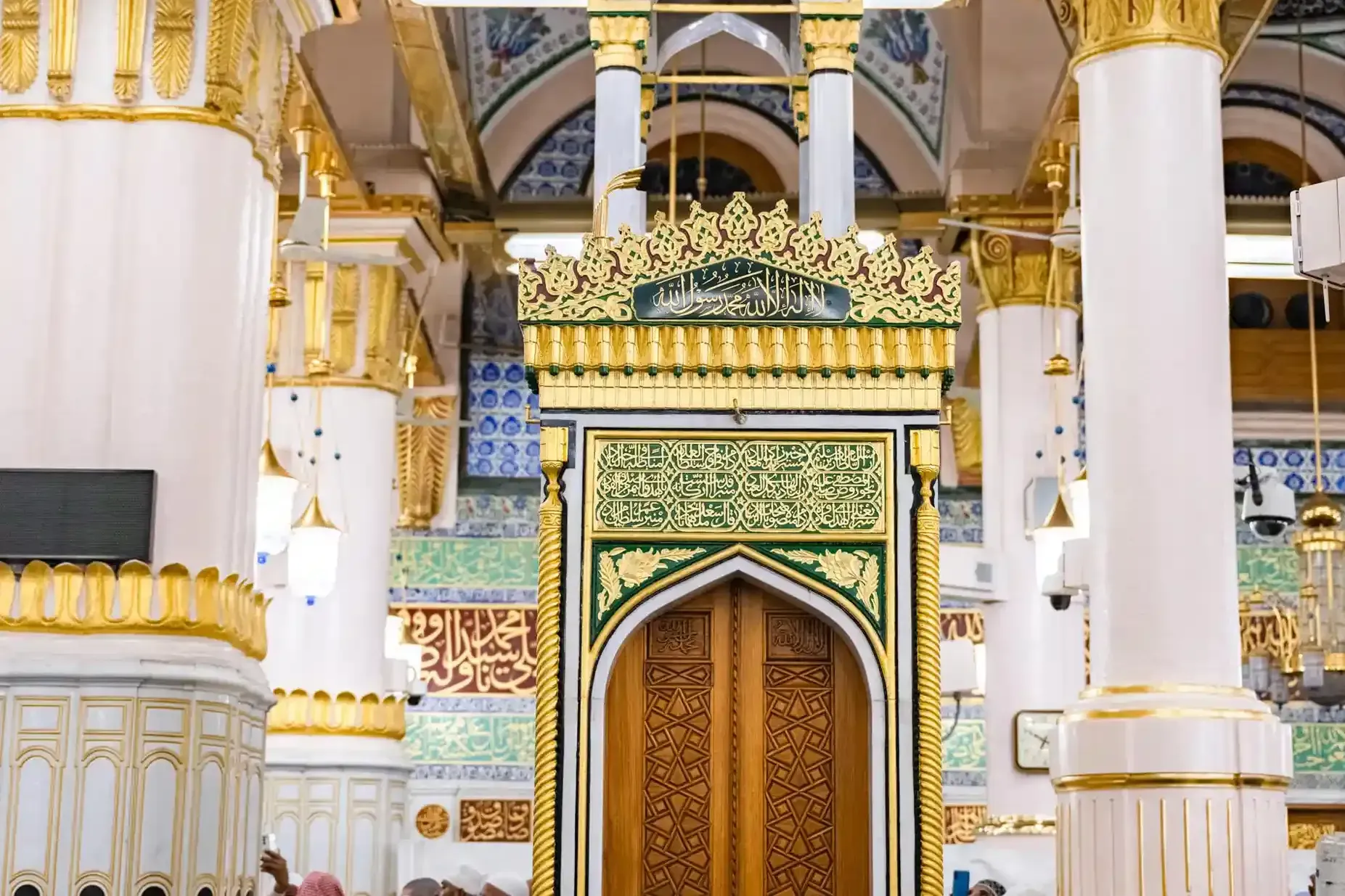
How Many Times Can You Visit Rawdah?
There is no religious limit to how many times you can visit Rawdah. The Nusuk app has recently updated its policy, stating: “From here, you can repeat your visit to Rawdah throughout the year as long as you are close to the Prophet's Mosque.”
This means that visitors now have the flexibility to request multiple visits, provided they remain within the vicinity of the mosque. Permits are refreshed and made available approximately every 20 minutes. However, this access remains subject to availability and specific conditions outlined within the Nusuk app.
Best Times to Visit Rawdah in 2025
If you're looking for a more peaceful and less crowded experience:
| Best Days | Ideal Time | Crowd Level |
|---|---|---|
| Weekdays (Mon–Wed) | Early morning (2:30–4:00 AM) | Low |
| Non-Hajj season | After Isha | Moderate |
| Off-season (Sha'ban, Muharram) | Anytime | Low to Medium |
For those exploring Madinah in a day, consider using the Hop-On Hop-Off sightseeing bus, which includes a stop near the Prophet’s Mosque, making it convenient to align your Rawdah visit with nearby attractions.
What Should You Do While in Rawdah?
To make the most of your short time inside:
✅ Recommended Acts:
- Pray 2 raka’ah (Tahiyyatul Masjid)
- Offer Nafl Salah
- Make Dua silently and sincerely
- Perform Dhikr or read short Surahs
❌ Avoid:
- Taking selfies or photos (this is strictly discouraged)
- Loud conversations or disputes over space
- Staying beyond your slot—let others benefit too
If you're unsure, simply stand quietly, raise your hands, and make heartfelt supplication. The intention matters most.
Facilities for Women Near Rawdah
The Prophet’s Mosque has significantly improved access and amenities for female visitors:
- Multilingual signs and volunteers
- Wheelchair-accessible paths
- Prayer spaces with air-conditioning
- Nearby ablution (wudu) stations
Updates and Safety Protocols for 2025
Saudi Arabia continues to modernize and expand Masjid un-Nabawi to improve the visitor experience:
- Live crowd tracking via the Nusuk app
- Increased security staff and female marshals
- Multilingual support (Arabic, English, Urdu, Bahasa)
Local Tip: Combine Rawdah with Ziyarat
Many visitors plan their Rawdah slot on the same day as visiting Ziyarat sites in Madinah. It’s an efficient and spiritually rewarding way to explore the city’s Islamic heritage.
Key Ziyarat Sites Near Rawdah
Some of the most popular Ziyarat sites include:
- Quba Mosque – the first mosque in Islam
- Masjid Qiblatain – where the Qiblah direction was changed
- Ghazwa Khandaq – site of the historic battle of the Trench
- Mount Uhud – site of the historic battle and martyrdom of Hamzah (RA)
How to Get There Easily
Taking the Hop-On Hop-Off bus is one of the most convenient ways to explore all these sacred sites in a single day. You can start your Ziyarat journey from Stop 1: Masjid un-Nabawi (North Gate)—just steps from Rawdah itself.
Practical Details
- Bus Frequency: Every 30 minutes
- Operating Hours: 9:00 AM – 5:00 PM
- Features:
- Multilingual audio guides
- Climate-controlled upper deck
- Pre-set route covering major Ziyarat locations
It’s a stress-free option, ideal for first-time visitors, families, and anyone who wants to explore Madinah with ease and context. You can view the full route and ticket information here.
Final Thoughts
In 2025, visiting Rawdah remains one of the most cherished experiences in Madinah, now made more organized through the Nusuk app and improved facilities. Whether you're visiting for the first time or returning again, approach Rawdah with humility and a heart full of dua.
Let this be a moment of closeness to the Prophet (ﷺ) and a memory that lasts a lifetime.

